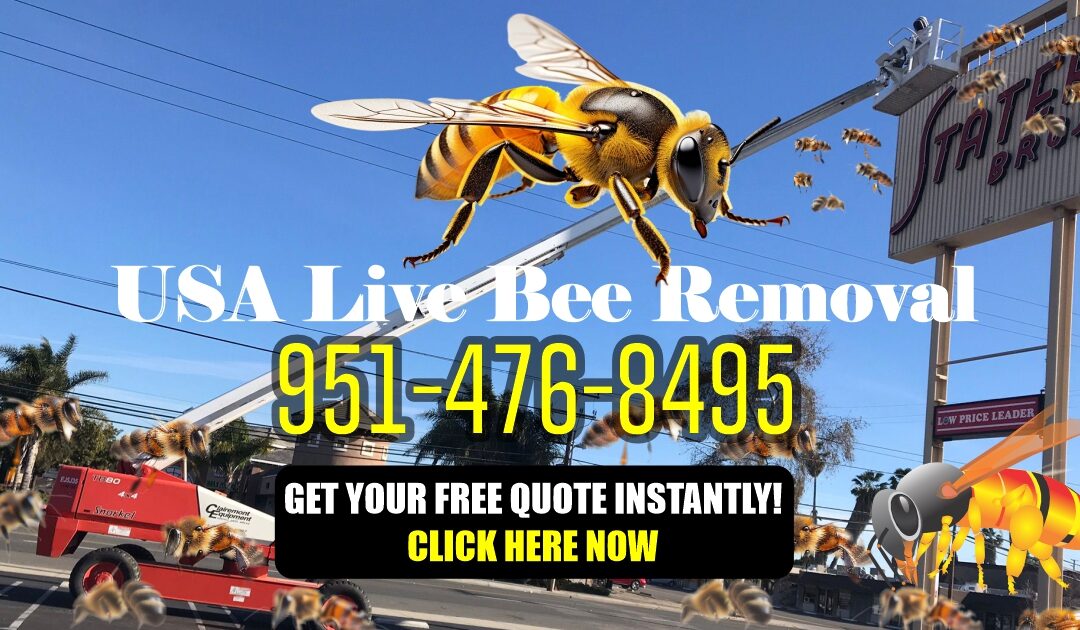Here in Joshua Tree USA Live Bee Removal recognize Honey Bee Health Coalition. Please do harm the bees, we will safely remove them to a safer shelter. Call us 951-476-8495
Please enjoy our new article
by: unknown
The Challenge
Bees play a vital role in agriculture as natural pollinators. Pollination is a necessary part of some plants’ fertilization processes, because it allows for the development of fruits and seeds. Honey bees are vital to the production of fruits, vegetables and nuts we enjoy every day. In fact, one-third of the world’s crops are pollinated by honey bees.
Farmers are facing the challenge of sustainably growing enough for a growing world. And the honey bee population has been facing its own challenges. A USDA report confirms there are many causes that compromise bee health, including Varroa mite, pesticides, weather and disease.
What Monsanto is Doing to Help
At Monsanto, we’re committed to helping protect our planet now and for generations to come. We work with farmers, universities, nonprofit organizations, and others to help make balanced meals more accessible, while also using natural resources more efficiently. Part of our commitment to preserving the environment includes protecting the health of honey bees. That’s why we work with many groups to develop sustainable solutions for the complex issues facing honey bee health.
Honey Bee Advisory Council (HBAC)
In 2012, we formed the Honey Bee Advisory Council to bring together members of the beekeeping industry, experts and academia. Together, we have learned a great deal about the complicated challenges facing beekeepers. With this council as a guiding force, our bee health research and development efforts are focused on overcoming key challenges and discovering sustainable solutions for beekeepers.
BioDirectTM Bee Health
BioDirect Technology is part of Monsanto’s Agricultural Biologicals platform. The technology holds the potential to develop products that protect plants from pests and weeds, and others that improve the health of beneficial insects including honey bees.
Varroa mite infestation represents one of the greatest threats to honey bee health in North America, including a significant contribution to hive collapse and increasing honey bee susceptibility to the spread of viruses. A BioDirect project targeting Varroa mites, currently in Phase 2 of our R&D pipeline, is showing great promise in reducing hive mortality. Expected to be the first BioDirect product to launch commercially, it would also provide an alternative to the non-selective miticides currently used to reduce hive damage caused by Varroa.
Honey Bee Health Coalition
Monsanto is a member of the Honey Bee Health Coalition facilitated by The Keystone Center, which brings together a diverse range of organizations to explore solutions to honey bee health. The coalition includes beekeepers, farmers, researchers, government agencies, agribusinesses, conservation groups, manufacturers and consumer brands, and other key partners. The Coalition’s mission is to collaboratively implement solutions that will help to achieve a healthy population of honey bees in the context of productive agricultural systems and thriving ecosystems. The Coalition is focusing on four key areas: forage and nutrition, hive management, crop pest management, and outreach and education.
Highlights of the Work of the Honey Bee Health Coalition include:
- Improving Honey Bee Nutrition: Bees living around production agriculture can lack a diverse diet. To increase access to forage, we invested in the establishment of forage acreage while encouraging multiple stakeholders to make similar investments. We awarded a grant to Project Apis m. to establish 2,000 forage acres and helped organize the Coalition’s Forage & Nutrition Group. By ensuring bees have enough natural pollen to eat, their health is improved – making them better able to tolerate other stressors. This effort enables around 1.8 million honey bee colonies, which are transported to the California almond fields each year, to support food production.
- Hive Management: Varroa mites are considered to be the largest factor in the decline of honey bees. Through the Coalition, we have developed a tool for Varroa Management. Over 5,000 users from over 100 countries have downloaded the guide.
- Reducing Pesticide Impacts: Incidental pesticide exposure often results from a lack of understanding and communication between growers and beekeepers. We will reach 50,000 growers with a training program to promote best practices, anchored by The Bee Understanding Project. Through The Bee Understanding Project, an incubated project of the Coalition, beekeepers, growers, entomologists, and crop advisors swap jobs to see challenges, opportunities, and develop effective solutions. The experience is captured in a documentary film which will be the basis of education programs.
What would a meal look like without honey bees?
- Creamer: Bees pollinate coffee, as well as alfalfa, which is fed to cows to produce milk for creamer.
- Juice: Your morning juice contains fruits that are pollinated by bees
- Jam: Bees help pollinate the fruits that are used to make jam.
- Fruit: Many fruit varieties would not exist without the help of bees transferring pollen.
- Nuts: Each spring, more than 1.6 million bee colonies are taken to California to pollinate almond trees.

